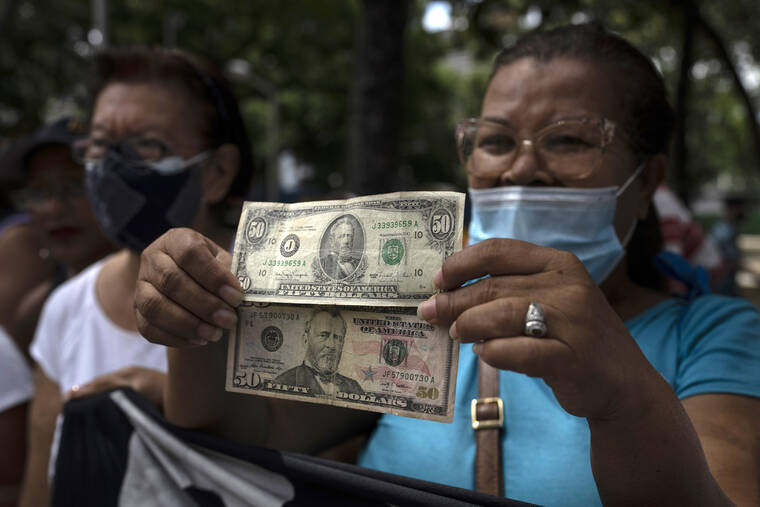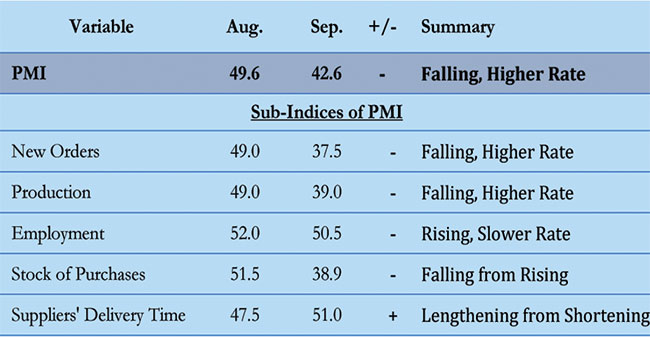‘Bad situation’: Soaring US dollar hurts the world

The cost of living in Cairo has risen so much that security guard Mustafa Gamal had to send his wife and one-year-old daughter to live with her parents in a village 70 miles south of the Egyptian capital to save money. ‘silver.
Gamal, 28, stayed put, working two jobs, sharing an apartment with other young people and eliminating meat from his diet. “The prices of everything have doubled,” he said. “There was no alternative.”
People all over the world share Gamal’s pain and frustration. An auto parts dealer in Nairobi, a baby clothes seller in Istanbul and a wine importer in Manchester, England have the same complaint: the rising US dollar is weakening their local currencies, contributing to soaring prices of goods and day-to-day services. This adds to the financial distress at a time when families are already facing food and energy crises linked to Russia’s invasion of Ukraine.
“A strong dollar makes a bad situation worse in the rest of the world,” says Eswar Prasad, professor of trade policy at Cornell University. Many economists fear that the sharp rise in the dollar will increase the likelihood of a global recession within the next year.
The dollar has risen 18% this year and hit a 20-year high last month, according to the benchmark ICE US Dollar Index, which measures the dollar against a basket of key currencies.
The reasons for the rising dollar are not a mystery. To combat soaring inflation in the United States, the Federal Reserve has raised its benchmark short-term interest rate five times this year and is signaling that further hikes are likely. This led to higher rates on a wide range of US government and corporate bonds, attracting investors and pushing the US currency higher.
Most other currencies are much weaker in comparison, especially in poor countries. The Indian rupee has fallen by nearly 10% this year against the dollar, the Egyptian pound by 20%, the Turkish lira by 28%.
Celal Kaleli, 60, sells baby clothes and diaper bags in Istanbul. Because he needs more liras to buy imported zippers and linings at the dollar price, he has to raise prices for Turkish customers who find it difficult to pay him in the much diminished local currency. “We are waiting for the new year,” he said. “We will review our finances and reduce our workforce accordingly. We can’t do anything else.
Rich countries are not immune. In Europe, which was already teetering towards recession amid soaring energy prices, a euro is worth less than a dollar for the first time in 20 years, and the pound sterling has plunged 18% from a year ago. The pound recently flirted with parity with the dollar after the new British Prime Minister, Liz Truss, announced huge tax cuts that shook financial markets and led to the ousting of her Treasury Secretary.
Normally, countries would benefit from falling currencies as it makes their products cheaper and more competitive abroad. But for now, any gains from higher exports are being snuffed out as economic growth falters almost everywhere.
A rising dollar causes pain abroad in several ways:
— This makes imports from other countries more expensive, adding to existing inflationary pressures.
— This squeezes businesses, consumers and governments that have borrowed in dollars. This is because more local currency is needed to convert into dollars when making loan repayments.
— This forces other countries’ central banks to raise interest rates to try to prop up their currencies and keep money from leaking out of their borders. But these higher rates also weaken economic growth and drive up unemployment.
Put simply: “The appreciation of the dollar is bad news for the global economy,” says Ariane Curtis of Capital Economics. “This is another reason why we expect the global economy to fall into recession next year.”
In a gritty area of Nairobi known for car repairs and the sale of auto parts, businesses are struggling and customers are unhappy. With the Kenyan shilling down 6% this year, the cost of imported fuel and spare parts is soaring that some people are opting to ditch their cars and take public transport.
“That was the worst,” said Michael Gachie, purchasing manager at Shamas Auto Parts. “Customers complain a lot.
The gyration of currencies has already caused economic difficulties in the world on several occasions. During the Asian financial crisis of the late 1990s, for example, Indonesian businesses borrowed heavily in dollars during good times, then were wiped out when the Indonesian rupiah crashed against the dollar. A few years earlier, the fall of the peso had inflicted similar suffering on Mexican businesses and consumers.
However, the surge in the dollar in 2022 is particularly painful. It adds to global inflationary pressures at a time when prices were already soaring. Disruptions to energy and agriculture markets caused by the war in Ukraine have amplified supply constraints resulting from the COVID-19-related recession and recovery.
In Manila, 29-year-old Raymond Manaog, who drives the colorful Filipino mini-bus known as a jeepney, complains that inflation – and especially rising diesel prices – is forcing him to work harder to get by. go out.
“What we need to do to earn enough for our daily expenses,” he said. “If before we ran our routes 5 times, now we do it 6 times.”
In India’s capital New Delhi, Ravindra Mehta has thrived for decades as a broker for American exporters of almonds and pistachios. But a record drop in the rupee – in addition to rising raw material and shipping costs – has made nuts much more expensive for Indian consumers.
In August, India imported 400 containers of kernels, up from 1,250 containers a year earlier, Mehta said. “If the consumer doesn’t buy, it affects the whole supply chain, including people like me,” he said.
Kingsland Drinks, one of the UK’s largest wine bottlers, was already squeezed by rising costs for shipping containers, bottles, corks and energy. Today, the soaring dollar is driving up the price of the wine he buys from wineries across the United States — and even Chile and Argentina, which, like many countries, depend on the dollar for global trade. .
Kingsland offset some of its foreign exchange costs by entering into contracts to buy dollars at a fixed price. But at some point, “those hedges run out and you have to reflect the reality of a weaker pound against the US dollar,” said Ed Baker, the company’s chief executive. Translation: Soon customers will just have to pay more for their wine.
————
Wiseman reported from Washington, Chan from London, Magdy from Cairo and Wieting from Istanbul. Cara Anna and Desmond Tiro in Nairobi; Mehmet Guzel in Istanbul; Krutika Pathi in New Delhi; and Joeal Calupitan in Manila contributed to this story.




